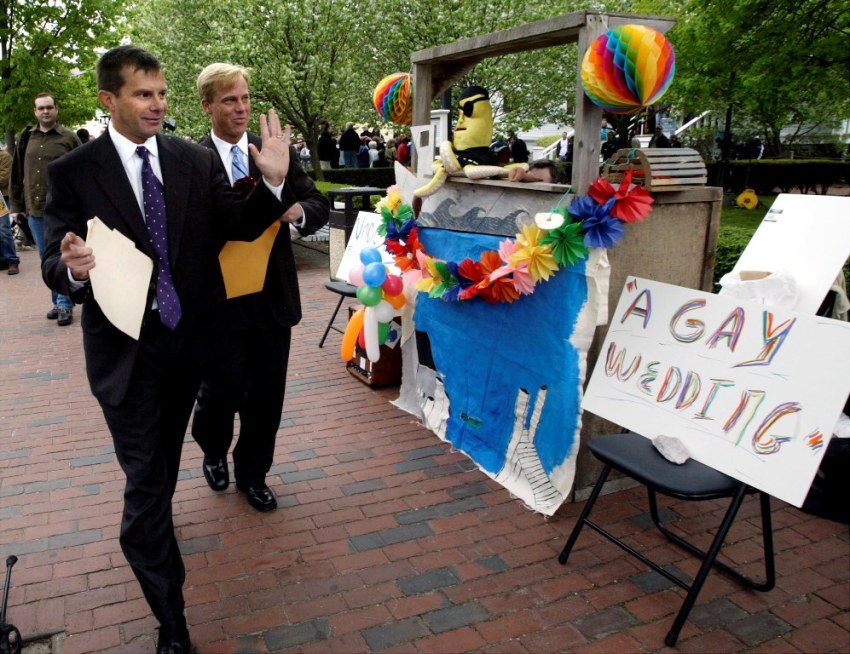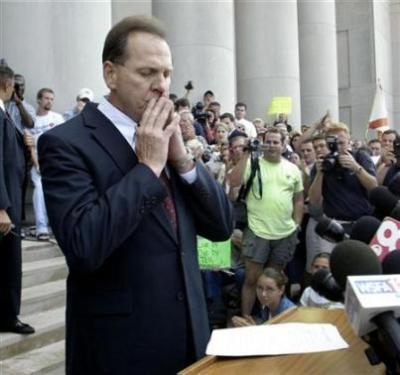Alabama Starts Issuing Marriage Licenses to Gay Couples After Supreme Court Denies State's Request for a Hold

Alabama started issuing marriage licenses to gay couples on Monday after the U.S. Supreme Court denied the state's request for a hold. The court's decision comes just one day after the state's Chief Justice Roy Moore released an order barring probate judges from issuing marriage licenses to same-sex couples.
USA Today reported Monday morning that at least one probate judge has issued gay marriage licenses, but other probate judges have refused to issue them.
Whether or not the state will enforce Moore's directive against probate judges issuing marriage licenses and thus nullify the ones being issued Monday morning is also unknown.
The Supreme Court is expected to rule later this year on whether or not state level bans on gay marriage are constitutional.
Following a judge's ruling striking down Alabama's marriage amendment last month, Moore issued an order Sunday evening stating that the decision will not be recognized.
"Effective immediately, no probate judge of the state of Alabama nor any agent or employee of any Alabama probate judge shall issue or recognize a marriage license that is inconsistent with Article 1, Section 36.03, of the Alabama Constitution or § 30-1-19, Ala. Code 1975," read the Moore order.

"The state of Alabama shall not recognize as valid any marriage of parties of the same sex that occurred or was alleged to have occurred as a result of the law of any jurisdiction regardless of whether a marriage license was issued."
Moore reasoned that since "neither the Supreme Court of the United States nor the Supreme Court of Alabama has ruled on the constitutionality of either the Sanctity of Marriage Amendment or the Marriage Protection Act" the state was not bound to the recent decision striking down the marriage law in Alabama.
"… [C]ases are currently pending before The United States District Court for the Middle District of Alabama and the United States District Court for the Northern District of Alabama that could result in orders that conflict with [the gay marriage rulings], thus creating confusion and uncertainty that would adversely affect the administration of justice within Alabama," added the order.
In June 2006, Alabama voters overwhelmingly approved a ballot initiative to add an amendment to the state constitution banning same-sex marriage.
Known as Amendment 774 or the Sanctity of Marriage Amendment, it was approved with over 80 percent of the vote.
In response to the amendment, two same-sex couples filed suit against Alabama charging that the marriage ban was unconstitutional.
Two same-sex couples, Cari Searcy and Kimberly McKeand, and James Strawser and John Humphrey, were the plaintiffs.
Last month, U.S. District Judge Callie V. S. Granade ruled the state's ban on gay marriage unconstitutional.
Granade granted a two week stay in the decision to give Alabama time to file an appeal and to seek an injunction against the ruling.
However, on Monday morning the U.S. Supreme Court refused to put the decision on hold, allowing at least in principle the Granade decision to take effect.
"In a 7-2 order, the justices rejected Alabama's bid to stop a federal trial judge's legalization order from taking effect Monday," reported Greg Stohr of Bloomberg.
"The state now will become the 37th where gays can marry. Justices Antonin Scalia and Clarence Thomas dissented."
It is not entirely clear whether or not the probate judges will issue marriage licenses or if said licenses will be legally recognized, due to the Moore order.



























